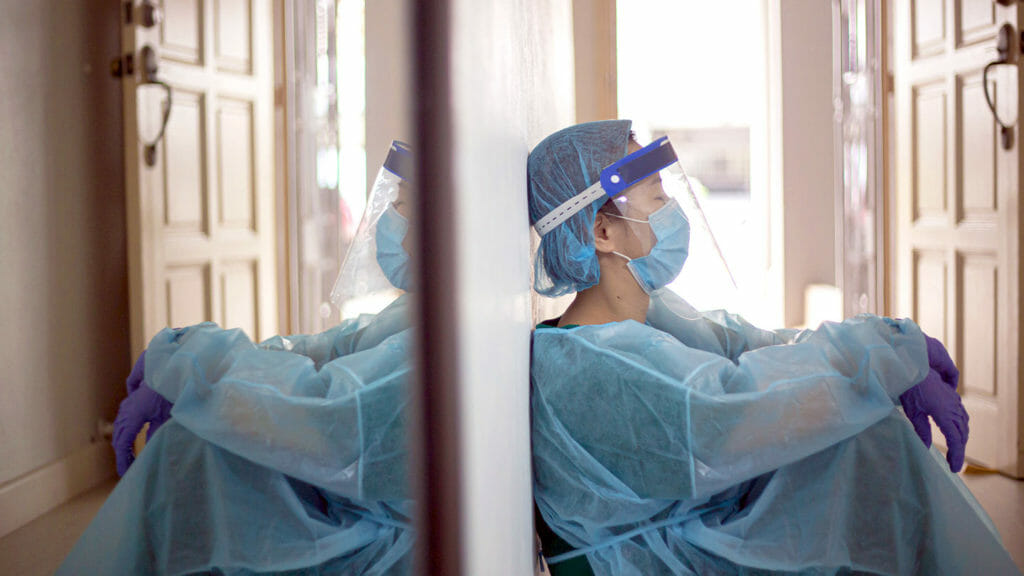
Nonprofit New York nursing homes are taking action against the state in a push to overturn “illegal and unconstitutional” policies that establish a minimum staffing requirement and spending mandates for providers.
LeadingAge New York, leading a group of 80 nonprofit and public nursing homes, on Monday filed a lawsuit against the state over the two statutes being enacted during the COVID-19 public health emergency.
“The combination of poor policies, lack of funding, and a workforce that is in short supply have resulted in a perfect storm of circumstances that leaves us with no other remedy than to seek the intercession of the courts,” James Clyne Jr., president and CEO of LeadingAge New York, said in a statement Monday.
Challenge to minimum staffing law
Former New York Gov. Andrew Cuomo (D) signed the minimum staffing law in June 2021. Implementation was delayed until the current Gov. Kathy Hochul (D) declined to extend a stay on the mandate at the end of March. The regulation requires facilities to provide a daily average of 3.5 hours of care per resident by a nurse or nursing assistant. At least 2.2 hours of care must be provided by a certified nursing assistant, and at least 1.1 hours of care must be given by a licensed nurse.
Providers have estimated that applicable nursing homes would have to spend an additional $325 million to meet the requirement. Penalties for non-compliance can hit $2,000 per day. The federal government is also pursuing a minimum staffing requirement for nursing homes.
LeadingAge NY alleged that the staffing law creates an arbitrary, one-size-fits-all standard that’s impossible to satisfy in the context of a declared staffing emergency and is inconsistent with previous state legislation on staffing ratios.
The group stated in court documents that a previous study by the state’s Department of Health found that “statutory staffing mandates were not consistent with the flexible, team-based approach to modern medicine that it requires to treat the needs of nursing home residents.”
“The staffing law instructs DOH and its commission to penalize nursing homes up to $2,000 per day for failure to meet those arbitrary and irrational targets,” the lawsuit states. “There are simply not enough nurses and nurse aides to satisfy the requirements of the staffing level laws, and the law will merely serve to financially penalize petitions and other nonprofit nursing homes, regardless of resident need or the quality of care delivered, depleting them of funds needed to recruit and retain staff.”
Challenge to spending mandate
The state’s new spending mandate for nursing homes also requires providers to spend a minimum of 70% of revenue on direct patient care — with at least 40% of that going to direct-care staffing. That also had been delayed from implementation until Hochul let it expire in March.
Providers in court documents allege that the spending law omits capital costs from direct resident care expenses but “inexplicably” includes all capital reimbursement for most facilities in the calculation of revenue which will discourage facilities from making capital improvements that support infection control efforts.
They also argued that law instructs the state to recoup, or confiscate, any annual operating revenue that exceeds 105% of annual operating and non-operating expenses.
“If a not-for-profit nursing home happens to have a good year financially, such as through investment income generated by reserves, [the state] will also seize those funds,” the lawsuit states. “The facility will not be allowed to save them for a financial crisis or extraordinary expense, or otherwise protect the facility’s fiscal condition.”
The group is seeking a statewide preliminary and permanent injunction prohibiting the penalties being levied against nursing homes, and wants the regulations declared unconstitutional and illegal.




